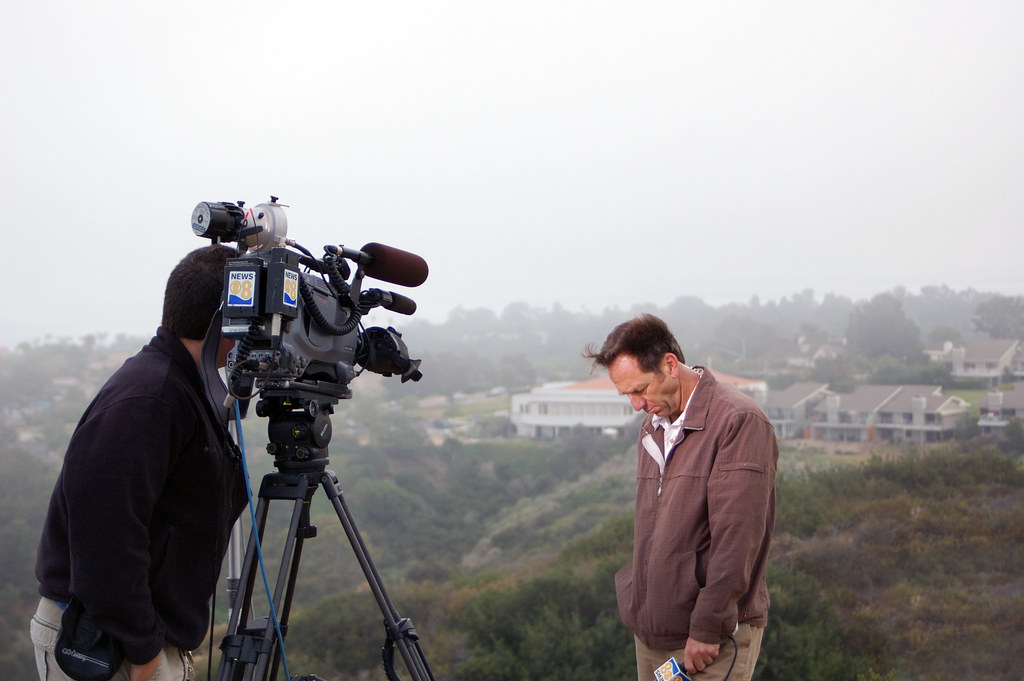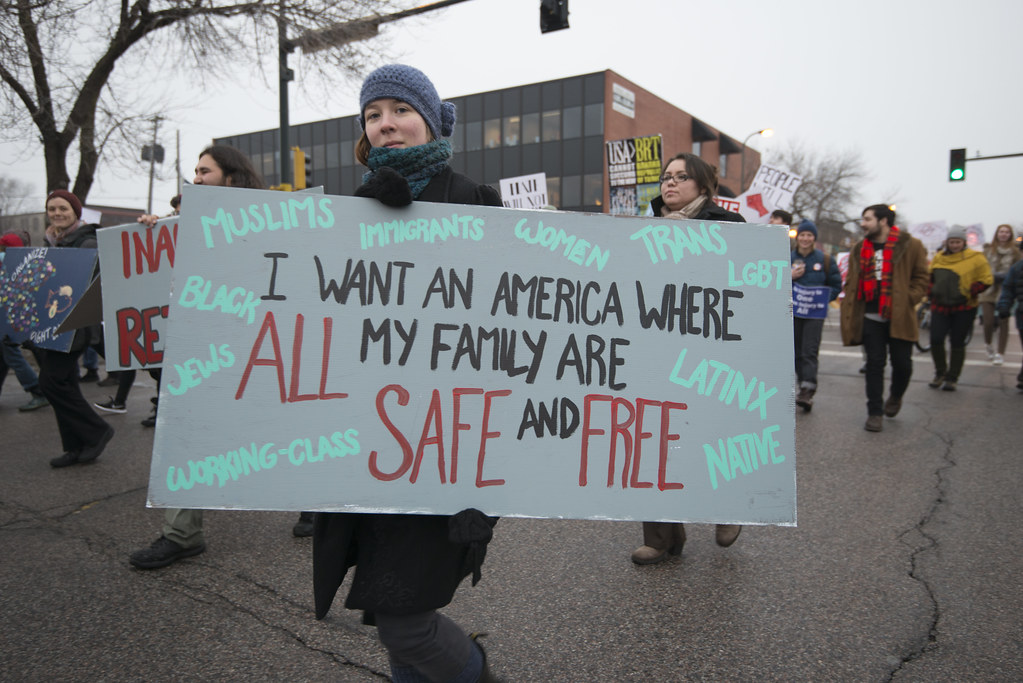In a turbulent political climate and an age of hyperconnectivity, American youths have become progressively more involved with activism. It’s inspiring to see young people care about the world and share their experiences, discussing environmental, social, political and economic issues. Mari Copeny fundraised for the Flint water crisis, and survivors of the Marjory Stoneman Douglas shooting launched the Never Again campaign for gun control. There’s no age limit to being a part of your community. So, where do you start?

Understanding the First Amendment
Whether you’ve lived in America your entire life or you’re new to the states, it’s essential to understand the law of the land, and the Constitution is a good place to start. You’ll often hear people saying “freedom of speech,” and the Constitution’s First Amendment is what they’re referencing. It protects the freedom of religion, press, assembly and the right to criticize the government. It’s number one for a reason!
“Congress shall make no law respecting an establishment of religion, or prohibiting the free exercise thereof; or abridging the freedom of speech, or of the press; or the right of the people peaceably to assemble, and to petition the Government for a redress of grievances.” — The First Amendment to the United States Constitution.
Now, this doesn’t mean you can say or do whatever you want — the law doesn’t work like that. It means you’re allowed to say certain things in public without the government punishing you.
For example, you can say “I hate apples!” on public property, but if you say “I hate apples!” on someone’s private orchard, they could ban you from their premises. You have the right to protest apples on Atlanta’s sidewalks but not on your neighbor’s front yard. You can follow a religion that abstains from apples, but you can’t force anyone else to stop eating them. And, The Connector (the press) is allowed to give you this silly apple analogy. Get the picture?

Demonstration
If there’s one way to raise awareness and grab the attention of people in power, it’s putting together a demonstration. Demonstrations include protests, parades, community service events and more. It involves bringing large groups of people together to inspire change or celebrate legal victories. Black Lives Matter, #MeToo and LGBT+ Pride are some of the most famous of these events in the 21st century.

Did you know Atlanta, Georgia, has a rich history of civic engagement?
With a diverse population of 6,144,050 in the Atlanta metro area, the city is a crown jewel of the Southern U.S. that strives for socio-economic progress — a forefront in Black, LGBT+ and Public health demonstrations.
The Atlanta History Center and National Center for Civil and Human Rights are fascinating resources for expanding your knowledge of this history.
You can find events through local news websites, social media, flyer boards and websites of organizations that advocate for your cause. Browsing hashtags and referring to verified accounts can help too.
Once you locate a place to march, you’ll need to research the location. Save a map marking restrooms, transportation/parking and anywhere you can escape from the crowd. Unfortunately, any large-scale activity can be a recipe for disaster, especially protests.
How you can stay safe:
- Write important phone numbers on your body or a notecard.
- Let somebody know where you’re going. It’s even better to bring a friend.
- Disable your phone’s Touch and Face ID. Implement a typed passcode to prevent the police or other individuals from unlocking your phone without your consent.
- Wear comfortable clothing that allows you to move freely. Covering your skin will protect it from tear gas or rubber bullets.
- Stay aware of your surroundings at all times. Listen to your gut and leave if you think something bad is going to happen. Your physical and mental health come first.
If things go awry and the police approach you, here’s what you can do:
- Ask if you’re free to leave, if the police say yes, calmly exit the area.
- If you’re arrested, don’t panic. Instead, ask for a lawyer and do not sign or say anything until you have legal aid. You have the right to one phone call upon arrest.
- Stay Silent. It’s best to avoid speaking with law enforcement because anything you say can be used against you in a court of law.
Parades are typically safer than protest demonstrations, but it never hurts to prepare for the worst.
Donation
Ever heard the phrase, “put your money where your mouth is?”
The best way to support those in crisis is through financial assistance. There are tons of apps, like CashApp and Venmo, that transfer money with the click of a button and platforms like GoFundMe allow users to set a donation goal.
More than $15,000 has already been raised through these five verified GoFundMe pages for the families of the victims of yesterday's mass shooting. Here's how you can donate. https://t.co/NgRZoKGSV2
— 7 News WKBW (@WKBW) May 15, 2022
People on the internet joke that crowdsourcing is the backbone of America’s healthcare coverage, but these jokes highlight a startling issue: many citizens can’t afford their medical expenses.
As of 2021, approximately $650 million, or about 1/3 of all funds raised by GoFundMe, went to medical campaigns. That amount highlights how dysfunctional our health care system is, forcing people to resort to crowdsourcing to afford their medical care.https://t.co/mUSgKuJeMT
— NewsBreak (@newsbreakApp) May 11, 2022
Another benefit of crowdsourcing is knowing exactly where your money is going. Charities and mission organizations can champion noble causes, but donating to the source gives many people peace of mind. So if you’re ever in a pinch, you’d be surprised how many people are ready to provide you with a hand (and a dollar.)
Education
Making a donation or attending a demonstration may not be accessible for everyone, and being unable to participate in that kind of activism doesn’t diminish your good intentions.
Have a conversation with a loved one and let them know what’s on your mind. Watch a movie or read a book to understand the issue at hand. Share a post on social media and promote it with a trending hashtag. Most importantly, check your voter registration and write down important deadlines — you don’t want to miss the chance to choose the people sitting in the office.
There are endless ways to spread awareness by educating yourself and others, and no matter which one you choose, you’re contributing to a larger cultural conversation. Remember: change doesn’t happen overnight, but it can start today!




















